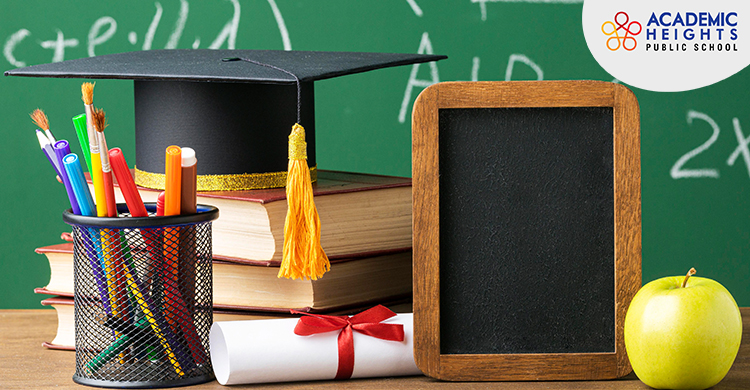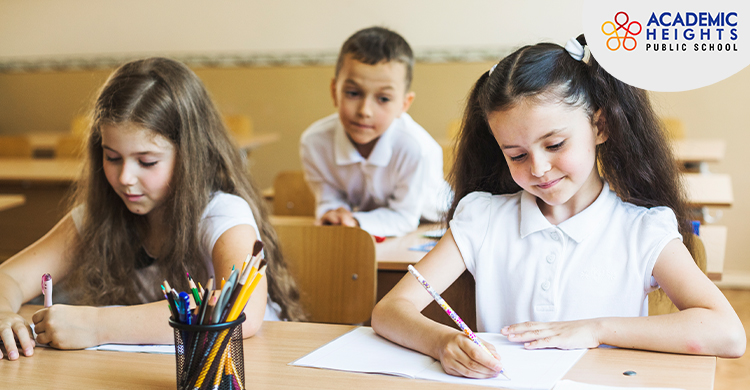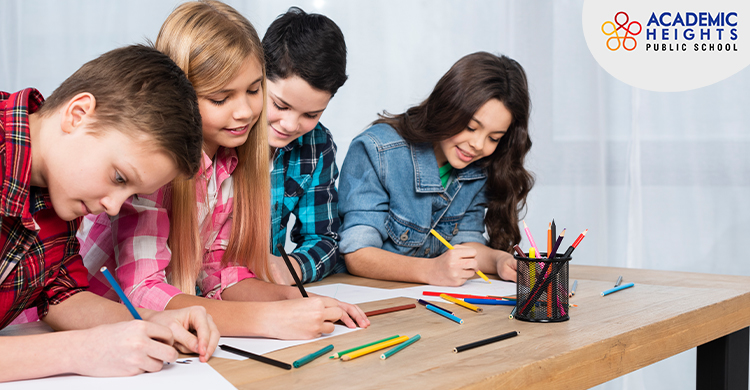India’s schooling stages of the stages of school education in India have undergone various changes over the years. Firstly The Gurukul system of education that was prevalent in ancient India has now become K12 modern schools. These schools provide education to students of different ages under one roof. After introducing the National Education Policy 2020, they suggested reforms. Furthermore, these reforms placed much-needed attention on the foundational years of education, aka pre-primary education.
Pre-primary education plays a crucial role in shaping a child’s development. It serves as a foundation for their success in later stages of school education. Today’s blog shares detailed information about the stages of High school education in India. So, this will be based on the New Education Policy 2020. This aims to create awareness among parents and students about the different stages of school education. It covers involve, the age criteria, and the goal of every educational stage.
1. Foundational Stage

NEP 2020 has been renamed educational stages in India. The education system combines and introduces the pre-primary and primary educational stages as the foundational stage. After understanding the importance of preschool education in a child’s formal school years, NEP 2020 introduced reforms. It has made preschool education an essential part of government schools. Before NEP 2020, private preschool education-providing schools limited pre-primary education levels.
The foundational stage covers five years, with the first three years focusing on Pre-schooling, Anganwadi, or Balvatika, as per the NEP 2020. These preschool stages are divided into pre-nursery, nursery, lower, and upper kindergarten. But, the minimum age for admission in the foundational stage is three years, and the maximum is six years. Most importantly, the approach has been made more inclusive and entertaining for young children’s holistic development with the changing times.
In the foundational stage, the main focus is on developing creativity in children through various play-way activities. In this stage, students learn social skills and manners and how to interact with peers. The development of curiosity and a love for knowledge is the main focus during the foundational stage to transform little learners into excellent students in formal schooling.
Before NEP 2020, primary education focused on educating children using a standardized curriculum. So, changing times have shifted the approach towards making education more inclusive and entertaining for the holistic development of young children. Due to NEP 2020’s diverse approach to pre-primary education, children have more opportunities to develop creative skills alongside their foundational literacy and numeracy abilities.
2. Preparatory Stage

As per NEP 2020, the preparatory stage consists of grades 3, 4, and 5. The age criteria range from 8 to 11 years. The primary goal of the Preparatory Stage of education is to ensure a smoother transition of students from play-way learning methods to more formal classroom-based learning. Finally, Teachers can introduce students to reading, writing, speaking, physical education, art, language, science, and mathematics through the preparatory stage.
This holistic approach helps build a strong base for future educational stages, setting students up for long-term success. Experiential learning is implied and introduced in the preparatory stage when students learn through direct experiences and reflection. The goal of experiential learning is to teach students how they can apply classroom learning in real-world situations.
3. Middle Stage

The Middle Stage, as per NEP 2020, consists of grades 6 to 8. The age criteria of students in the Middle Stage range from 11 to 14 years. On the other hand, In this educational stage, the primary focus is on individual subject learning, like gaining knowledge of abstract concepts in sciences, mathematics, arts, social sciences, and humanities. The diversity of subjects in this stage lets students discover their unique interests and talents based on their knowledge.
In the middle stage, students engage in a discussion-based learning process where they can apply their learned knowledge in real-world situations through group discussions, projects, assessments, and lab practices. Certainly, In the modern world, it is indispensable to introduce students to digital ways of learning by imparting knowledge through computers, VR, and thoughtful classes.
4. Secondary Stage

As per NEP 2020, the Secondary Stage consists of grades 9 to 12. Firstly, The age criteria of students in the secondary Stage range from 14 to 18 years. The secondary stage follows a multidisciplinary approach regarding the students’ grades 9 to 12 curriculum. In grade 11, students choose the stream they want to study in detail. These streams include Science with mathematics or biology, Commerce, and Humanities.
Choosing the stream of education for higher studies gives students the flexibility to choose their subjects based on their life aspirations. Moreover, in the Secondary stage of education, students have to undergo national or state-controlled examinations in 10th and 12th grade. While primary education aims to provide students with the skills for their survival and growth, secondary education aims to provide knowledge and skills to students to make them fully functional members of society.
Conclusion
The New Education Policy 2020 is an effective initiative to restructure traditional stages of school education in India and make the educational system more inclusive and holistic. Equally importantly focusing on the much-needed formative years of learning and introducing reforms at every level of education, NEP 2020 aims to prepare students for a globalized digital world. The approach has been made more inclusive and entertaining for young children’s holistic development with the changing times.
At AHPS, we are committed to aligning our curriculum with NEP 2020’s vision. Our focus on experiential and play-based learning during the foundational and preparatory stages helps develop critical thinking and curiosity in our students. As students progress through the middle and secondary phases, our multidisciplinary approach and personalized guidance ensure they have the skills and knowledge needed for a successful future. Lastly, At AHPS, our mission is to nurture holistic development and academic excellence in every student, empowering them to achieve their full potential.
